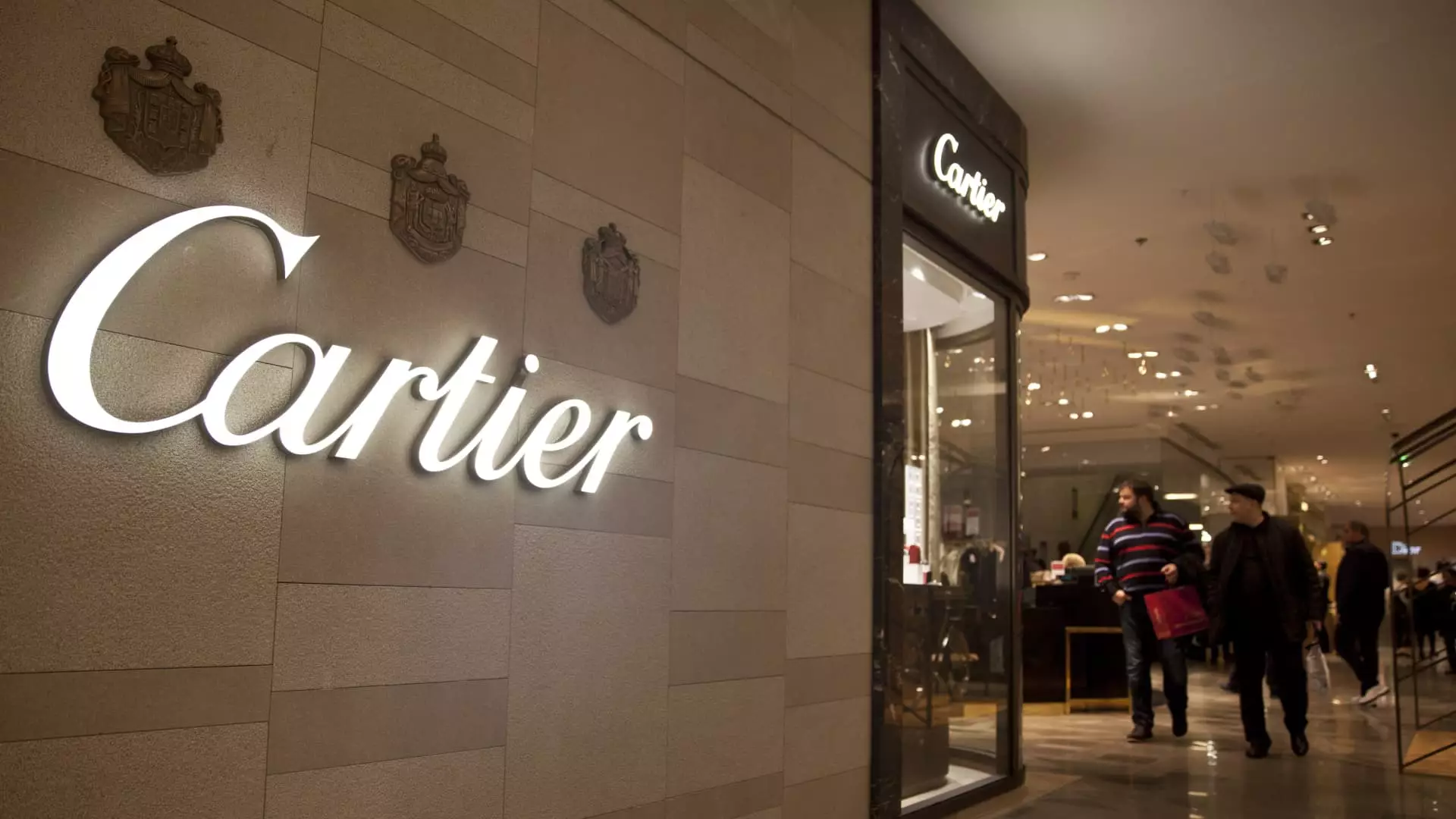In a notable turn of events, the luxury goods conglomerate Richemont, renowned for brands like Cartier, has shown a remarkable resurgence in its financial performance during the third quarter. The group’s sales skyrocketed by 10% to an impressive 6.2 billion euros (approximately $6.38 billion) for the three-month period ending in December. This growth is particularly notable as it exceeded the modest expectations of analysts, who had anticipated only a 1% increase, reflecting a significant positive surprise in the luxury market. This surge in revenue has been heralded by Richemont as its “highest ever” quarterly sales figure, suggesting not just a recovery but a potential reestablishment of the luxury sector’s appeal to consumers.
Following the release of its third-quarter sales figures, Richemont’s share price surged by over 17% in early London trading. This upbeat result has not only boosted investor confidence in Richemont but has also positively influenced the stocks of its peers in the luxury sector, including notable names like Christian Dior, LVMH, and Hermès. This collective uplift signifies a potentially encouraging trend for the broader luxury market, especially during a period that encompasses the holiday shopping frenzy, traditionally a peak time for luxury retailers.
Despite the overall good news, not all corners of Richemont’s business were flourishing. The Asia-Pacific region, a critical market for luxury goods, notably lagged behind, experiencing a 7% decline in sales. This downturn was chiefly driven by an astonishing 18% drop in sales across mainland China, Hong Kong, and Macau. The luxury market in China has taken a considerable hit as the country grapples with a slow recovery from the economic consequences of the Covid-19 pandemic. Once a powerhouse of luxury consumerism, China’s current struggles represent a concerning trend that could have long-standing implications for global luxury brands.
Richemont’s recent performance comes in the wake of significant upheaval in its executive leadership. The appointment of Nicolas Bos as CEO has marked a new chapter for the company, after previous management shifts had caused considerable fluctuations in stock performance. Reflecting the company’s recovery, Richemont’s shares have appreciated approximately 28.75% over the past year. This upturn illustrates a renewed investor sentiment, buoyed by a sense of stability under Bos’s leadership, particularly following the tumultuous period that preceded his appointment.
Luca Solca, a senior analyst at Bernstein specializing in the global luxury goods market, has characterized Richemont’s results as a potentially encouraging early signal indicating a revival in the wider luxury sector. Solca noted that the improvements in consumer spending in Europe and the Asia-Pacific region, excluding greater China, are driven by robust domestic demand and a surge in tourist activity. The Americas region has also benefitted from a strong local demand. These factors are indicative of a broader recovery trajectory, leading Solca to speculate that the third quarter of 2024 may represent a low point for luxury retailers.
While Richemont’s latest financial results present a promising turnaround for the luxury sector, caution remains vital. The dual challenges posed by the Asian market’s sluggish recovery and the broader uncertainties in the economic landscape warrant a careful approach moving forward. As the luxury industry continues to navigate these intricate dynamics, the performance of brands like Richemont may act as a bellwether for the sector’s trajectory over the coming months. The optimism surrounding Richemont’s recent sales is encouraging but should be tempered with an awareness of the underlying challenges still at play, particularly in the crucial markets of Asia. As the luxury sector emerges from a turbulent period, it will be fascinating to observe its path toward recovery and expansion.


Leave a Reply